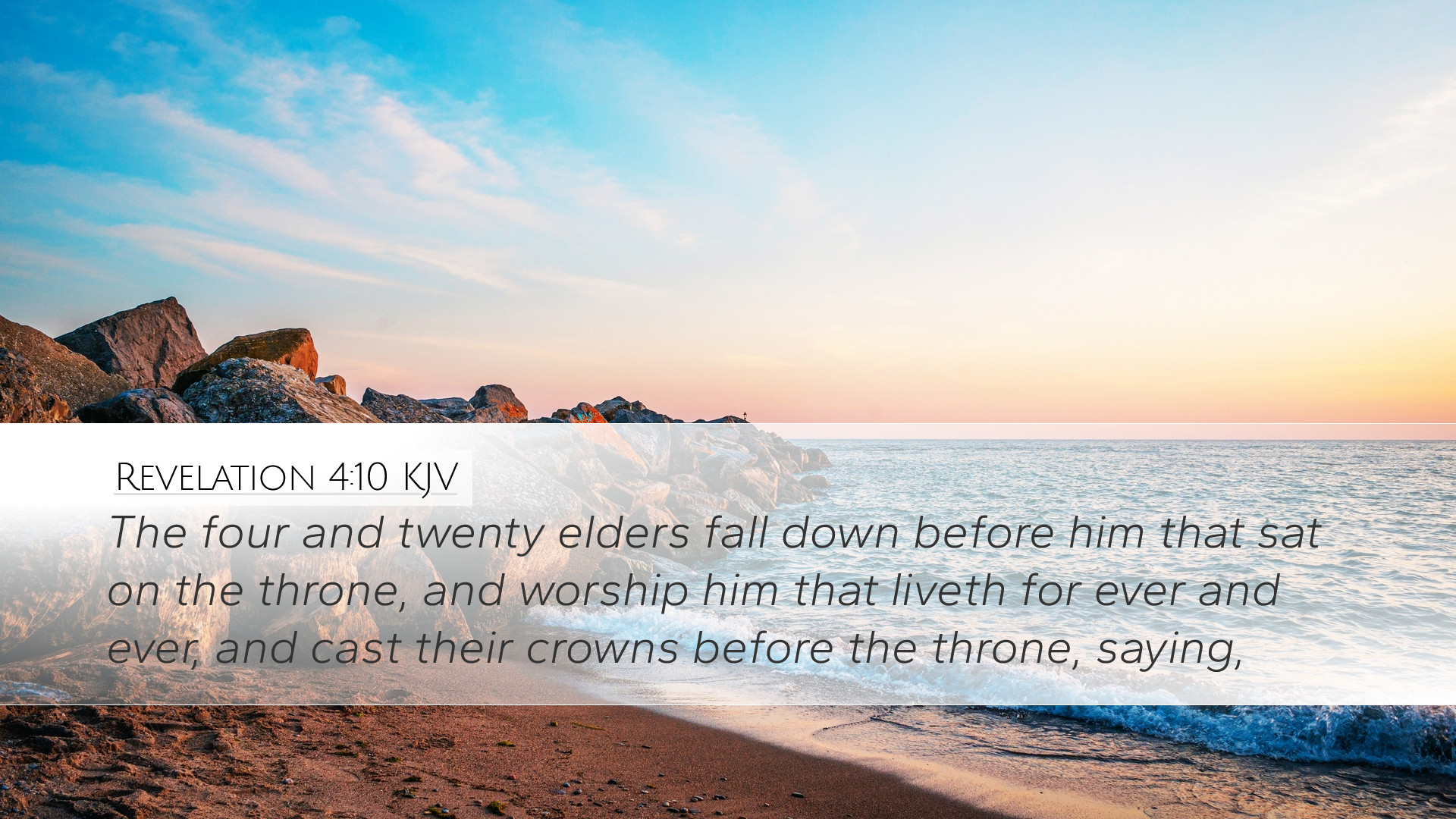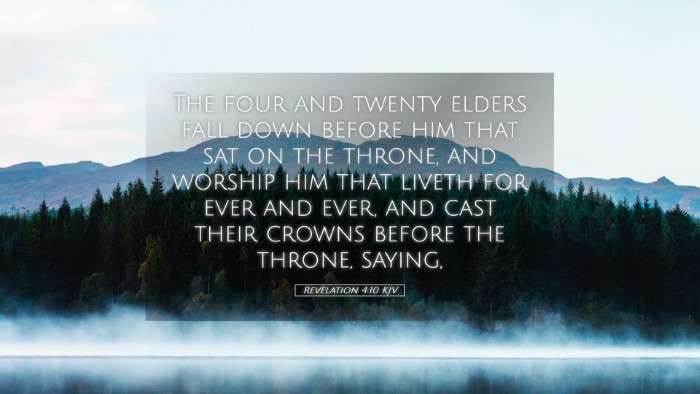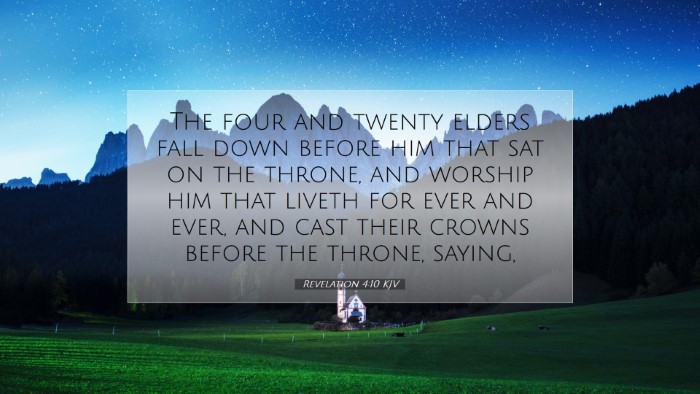Commentary on Revelation 4:10
Verse: Revelation 4:10 - "The four and twenty elders fall down before him that sat on the throne, and worship him that liveth for ever and ever, and cast their crowns before the throne, saying,"
Context Overview
The book of Revelation, attributed to the Apostle John, unveils profound truths and visions concerning the end times. Revelation 4 serves as a portal into the heavenly realm, introducing readers to the throne of God, surrounded by a scene of both majesty and worship. The actions of the twenty-four elders are emblematic of the response of creation to the holiness and sovereignty of God.
Significance of the Twenty-Four Elders
The figure of the twenty-four elders holds deep symbolic meaning. Some interpretations suggest they represent the twelve tribes of Israel combined with the twelve apostles, signifying the fullness of God's people in both the Old and New Testaments. This unity emphasizes God's redemptive plan for humanity throughout history, encapsulating both Jewish and Gentile believers.
Insights from Matthew Henry
Matthew Henry highlights that the elders' act of falling down signifies profound reverence and humility before God. He notes that their position and actions reflect the true spirit of worship. “They worship Him that liveth forever and ever,” emphasizes God’s eternal nature, contrasting the transient nature of human life and earthly crowns.
Insights from Albert Barnes
Albert Barnes expounds on the concept of worship as passion intertwined with acknowledgment. He remarks that the elders' act of casting their crowns before the throne symbolizes recognition that all authority and glory ultimately belong to God. Barnes states, “It is an act of solemn recognition that in the presence of God, the honors and rewards received on earth are insignificant.”
Insights from Adam Clarke
Adam Clarke provides additional layers of interpretation regarding the crowns and worship. He posits that the crowns may represent various rewards given to faithful servants. The act of casting them before God signifies not only humility but also a communal acknowledgment that all achievements are derived from divine grace. “We are but stewards of what God has entrusted to us,” Clarke remarks, highlighting the essence of worship as giving back to God.
Theological Implications
This verse encourages believers to consider their status before God. The act of the elders represents not merely submission but also a liberating act of worship that brings clarity to the believer's relationship with the divine. Here's a summary of key theological implications:
- Worship as Central to Divine Encounter: The scene provides a model for worship that is both corporate and deeply personal. It reflects a heavenly protocol centered on reverence.
- God's Sovereignty: The acknowledgment of God’s eternal dominion reaffirms the belief that He is the Creator and Sustainer of all things.
- Humility in Service: The elders’ humility teaches that true service to God necessitates the relinquishing of personal glory and a focus on His greatness.
Practical Applications for Believers
The study of Revelation 4:10 offers profound insights for Christians today, particularly in understanding the essence of worship. Here are several practical applications based on the insights of the commentaries examined:
- Prioritize Worship: Encourage believers to cultivate a lifestyle of worship that reflects humility and reverence for God, recognizing His sovereignty in all aspects of life.
- Live with Eternity in View: The eternal nature of God encourages Christians to live their lives with a perspective that transcends the temporal, focusing on eternal rewards.
- Practice Gratitude: Like the elders, believers are reminded to continually express gratitude and glorify God for His grace and gifts, understanding that all accomplishments come from Him.
Conclusion
Revelation 4:10 unfolds a beautiful depiction of worship that transcends earthly understandings. The insights provided by Matthew Henry, Albert Barnes, and Adam Clarke collectively underscore the essence of true worship as a responsive act to God's majesty. As believers reflect on this scripture, they are challenged to embrace humility, prioritize worship, and recognize the eternal value of their relationship with God.


